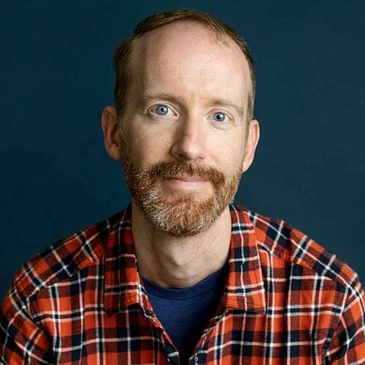The term "love letter" is criminally overused in this industry, but you'd be hard pressed to find a more appropriate phrase for Fall Through. The book finds cartoonist Nate Powell reconnecting with the punk rock touring days of the 90s. Before his career as a cartoonist, Powell played in bands, including his time as one of the longest tenured members of Little Rock's Soophie Nun Squad.The artist joins us to relive those times and discuss his friendship with civil rights pioneer, Congressman John Lewis. Transcript available here.
Hosted on Acast. See acast.com/privacy for more information.

